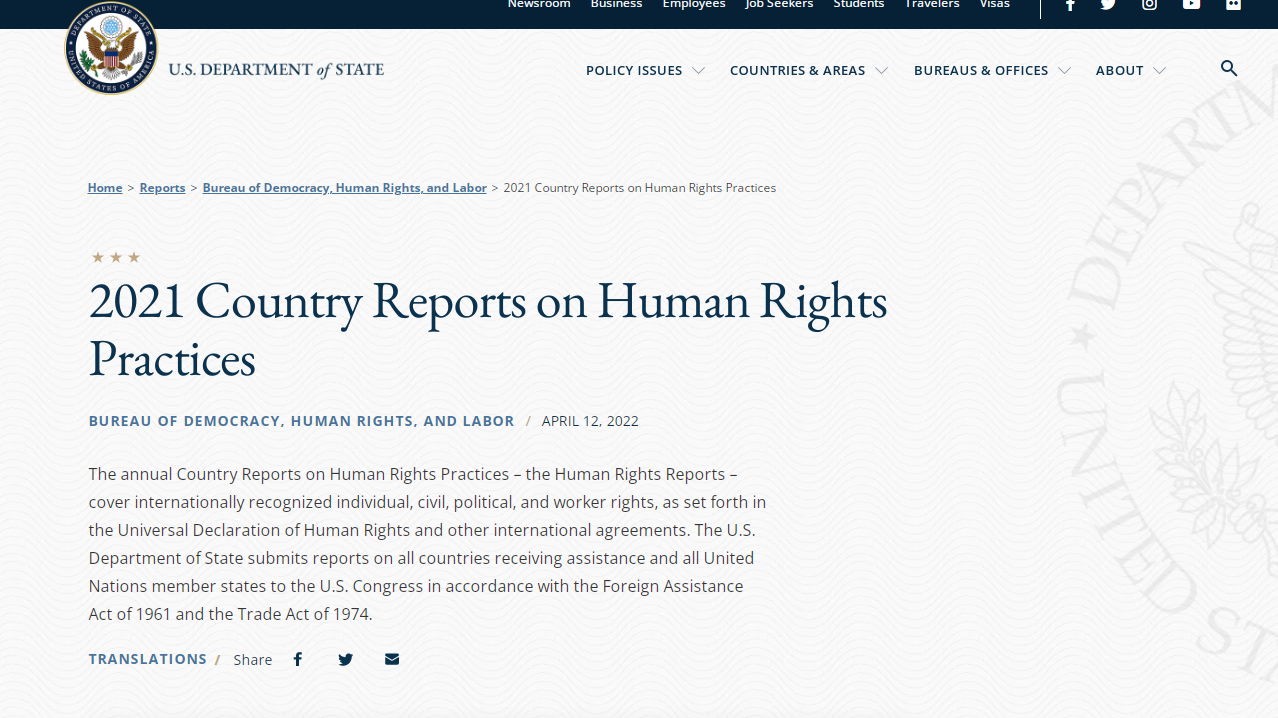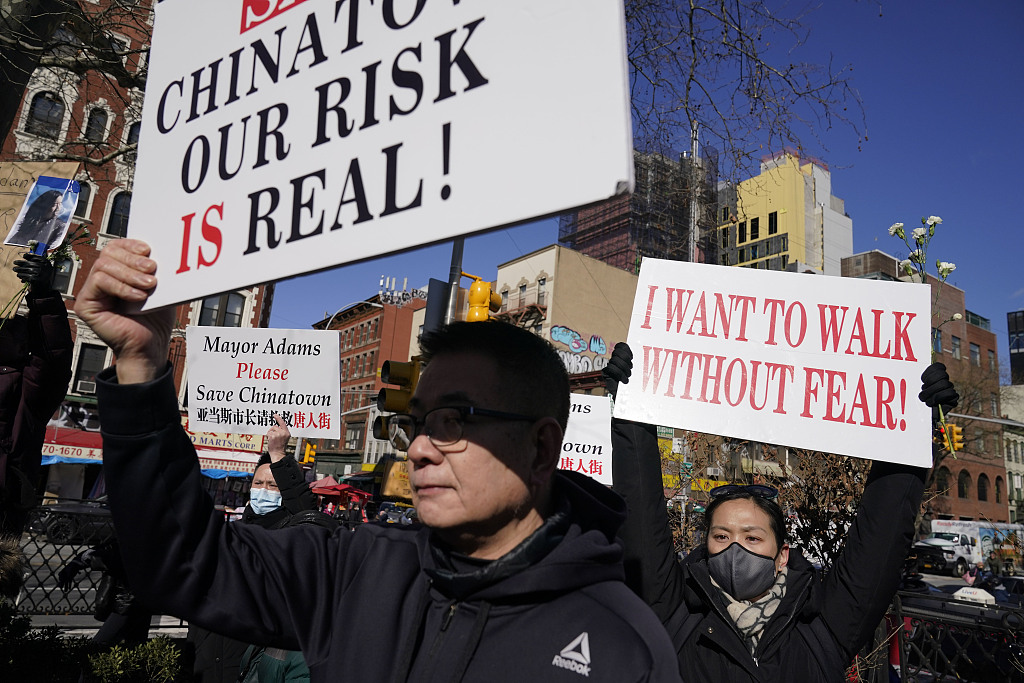
A screenshot of the U.S. goverment's 2021 Country Reports on Human Rights issued on April 12, 2022. /U.S. Department of State
A screenshot of the U.S. goverment's 2021 Country Reports on Human Rights issued on April 12, 2022. /U.S. Department of State
Editor's note: Anthony Moretti is an associate professor at the Department of Communication and Organizational Leadership at Robert Morris University. The article reflects the author's opinions and not necessarily those of CGTN.
The following words will come as no surprise to anyone aware of the chronic bashing of China throughout the U.S.: The government has used its latest human rights report as another opportunity to advance its claim that China is a deeply flawed and dangerous nation because it maintains a dreadful human rights record.
The preface of the report, which was issued on April 12, states, "For nearly five decades, the United States has issued the Country Reports on Human Rights Practices, which strive to provide a factual and objective record on the status of human rights worldwide." China is one of five nations mentioned in the preface in which clear evidence is available to affirm that "human rights and democracy are under threat."
Readers soon learn that almost 200 countries across the globe were evaluated. Was the United States one of them? Of course, not.
Needless to say, the section about China, which totals 90 pages, identifies multiple examples that allow the U.S. to build a case that China is an awful place.
The Chinese government was quick to respond to that claim of a "factual and objective record." Foreign ministry spokesman Zhao Lijian said on April 13 that the document was "full of political lies and ideological bias." Zhao added that the "hypocrisy and double standards" exhibited by the U.S. could not be ignored as it sought to make itself the "human rights judge."
That criticism – that the U.S. seeks to be the global "human rights judge" – is impossible to refute. Much like the U.S. is often guilty of wanting to be the world's policeman, it also leaves little doubt that it believes itself to be the home to the gold standard of human rights.

People hold signs during a rally in response to the killing of Christina Yuna Lee in the Chinatown section of New York, U.S., February 14, 2022. /CFP
People hold signs during a rally in response to the killing of Christina Yuna Lee in the Chinatown section of New York, U.S., February 14, 2022. /CFP
Perhaps that explains why the U.S. chose not to evaluate itself. That is unfortunate.
It would have been interesting to see how the American government described the legacy of racial animus that continues to exist in the U.S. Moreover, how would the U.S. government have explained the surge in anti-Asian hate crimes that drew domestic and international headlines during the worst of the coronavirus pandemic? What would such a report have stated about efforts in many states where authorities are making it more difficult for people, especially the poor and people of color, to vote? What would the report have mentioned when support for building walls and restricting immigration was reviewed? How would dubious tax laws that favor the wealthy over the needy have been defended? And, yes, what would such a report have stated about the pandemic, which has been responsible for the deaths of almost a million Americans, a number that dwarfs the death count in any other country?
Meanwhile, the Human Rights Watch (HRW) took a look at the human rights situation in the United States. Calling attention to chronic problems, the report notes that "the United States continues to fail to fulfill its human rights commitments" while acknowledging the country's worst failings: "The U.S. continues to report the world's highest criminal incarceration rates, with nearly 2 million people held in state and federal jails and prisons on any given day and millions more on parole and probation. Despite some reductions in incarceration rates for Black people, they remain vastly overrepresented in jails and prisons."
Of course, when it comes to the United States, the legacy of wars – most recently in the Middle East and South Asia – that have crippled nations for decades must be factored into any human rights conversation. We know destroyed buildings can be rebuilt, but families that have been permanently torn apart by the loss of loved ones cannot. Do not forget that the Watson Institute of International and Public Affairs at Brown University has concluded that as many as 250,000 civilians died in Iraq and Afghanistan because of the U.S.-led invasions of both countries. The American record of "respecting" human rights elsewhere must be remembered.
No nation is perfect, and a friend or foe can easily identify shortcomings that exist inside any country. But one can't ignore the hypocrisy on display whenever the U.S. makes a case that other countries are guilty of human rights failings while at the same time either ignoring or attempting to sweep away its own terrible record.
(If you want to contribute and have specific expertise, please contact us at opinions@cgtn.com. Follow @thouse_opinions on Twitter to discover the latest commentaries in the CGTN Opinion Section.)

